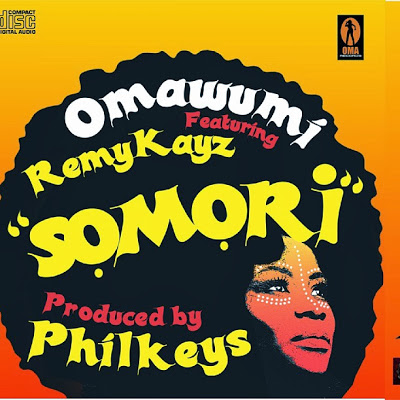The latest news that Brymo, an artist signed with Chocolate City Nigeria who gave us the amazing hook to Ice Prince’s song Oleku’ has called it quits, is really no news. From where I sit, this was obvious and I have discussed it on my website www.africamusiclaw.com where I take on music business and music law issues especially pertinent to Nigeria’s music industry. I am currently on a break from the site pending a return in August. As it stands, The Nigerian music industry is so fragmented with every artist wanting to be a record label owner, breakups are now rampant. For the many who call it quits, there is a lack of the basic understanding of the music value chain, their roles in it and WHY it is that they do what they do.
Back to the Brymo story and then we link up some quick lessons for Ladybrille fashion designers specific to the fashion industry on breach of contract claims. First, Brymo joins ex-label mate Jesse Jagz, the brother of M.I Abaga in quitting the respected record label. Jesse Jagz called it quits via Facebook a little over two months ago and it was again no big deal. In the West and in Africa, artists come and go. The big deal, to me, was and is the continued mishandling of the publicity and the method used to communicate these artists are leaving the label by both the artists and Chocolate City, the label.
When Jagz left, no one within his label knew. They found out too on Facebook like the rest of us. It was crude and abrupt departure. The label immediately scrambled and most importantly later released a statement which attempted to deny his departure or that the label management had no idea their top producer had called it quits. Jagz, nevertheless, contradicted them with a video interview on national television saying no one knew. This needless to say was equally as embarrassing if not more, than the statement on the worldwide web via facebook that showed the label’s loss of control and communication with their artist.
Similarly, in the Brymo instance, Hip-hop World Magazine, a relatively credible source in Nigeria’s entertainment industry, reported yesterday that Brymo had left the label. The label again released a statement via its public relations camp stating the reporting was “rumors” and basically unfounded. See statement below:
“We can confirm that Brymo still has a valid contract with Choc City and we are certain our Artiste “Brymo” can confirm the same fact. We urge all reputable media houses to check facts with our establishment prior to releasing “Untrue” stories to the general public that rely on them for valuable Information.”
Less than 24hours after the release, their artist goes on twitter and confirms that he has indeed left the label. How very embarrassing. At a minimum, the label ought to be able to put a cap on the inconsistency and embarrassment of contradicting its acts by either not commenting or finding a way not to look silly when it goes about denying so called “untrue” “rumors” to the public. If you lack control over your artist such that your artist will make a statement contradicting you, then you need to rethink releasing a statement until you are on the same page with your artist.
Can Brymo leave Chocolate City? Yes he can and has, per his twitter statement.
Is Brymo still legally bound by the contractual terms he signed with Chocolate City for three more albums for a two year period i.e. to end by 2015? Errr yah! as in yes.
The label is claiming there is an outstanding 3more albums left to be produced within the next two years. Although we have not seen the terms of that agreement, the label’s claim is not inconsistent with industry practice. Well, the dude has walked out. Now what?
What is their remedy? Needless to say, the label can and should sue Brymo for a breach of contract, if it makes sense to do so. Further any label signing the young act could be a party to a possible action for the unlawful interference with the contractual relationship/agreement between Chocolate City and Brymo.
I frankly find it ridiculous the rate artists walk away from their obligations in Nigeria’s music industry. If the issue is that a contract is not fair because they now know better, then get a lawyer to re-negotiate those terms and come to the table with maturity and as an artist ready to have a long term career.
Let’s switch over to what I am excited to briefly discuss with you all i.e. the FASHION INDUSTRY here in the States and breach of contract claims. Ladybrille designers, breach of contract claims are rampant in the fashion industry in the USA, as most of you already know. In fact, just as much if not more than (trademark) infringement claims.
It is not unusual to see the big client taking advantage of the small designer, production house, model agency or models. Also, independent of the fashion designer-manufacturer relationship where a lot of breach of contract claims come up, in the fashion model and modeling agency context, these claims are also rampant. A model signs a modeling agreement, renews her contractual terms, but does not read carefully what she signs and is stuck with a contract that has her on the losing end. Should she walk away? In the past she did and the agencies let her go. Now, agencies are suing models and of course models are suing too.
Regardless of where you find yourself along the fashion value chain/spectrum, your first stop should be to consult with a lawyer in your industry who can thoroughly vet out the issues and protect your interests. The same goes for music.
Finally, as to African fashion and African designers, these breach of contract claims are worse. Like the US, in fashion hub spots like South Africa, Nigeria and even Ghana, there is legal recourse but many do not take advantage of the legal system. Partly because culturally they are used to working a certain way and secondly because they are not as exposed. As we continue to see Africa’s fashion industry gain even more recognition globally and brands collaborate both on the continent and in the diaspora, expect to see more awareness and ultimately more African designers (especially the big names) not putting up with the status quo.
-Uduak Oduok
Twitter photo credit: 360nobs
Ms. Uduak Oduok is the Founder and Editor-in-Chief of Ladybrille® Magazine. She is also a Practicing Attorney and Partner at Ebitu Law Group, P.C, ebitulawgrp.com where her practice areas include Business Litigation and Fashion & Entertainment Law. She has counseled a range of clients from musicians, models, actors and actresses to designers on numerous areas of the law including contracts, business law, fashion and entertainment law, copyright, trademark i.e. intellectual property law. She can be reached at ([email protected]) to share/pitch your fashion law related stories for a feature on Ladybrille. All other inquiries, please visit the www.ladybrillemag.com/contact page for appropriate contact email.
DISCLAIMER: Nothing herein forms an attorney-client relationship. The legal commentary& analysis provided on Ladybrille is for informational purposes only and is not meant nor should be construed to be legal advice.
Founded in 2007, Ladybrille® Magazine is a California based pioneer digital publication demystifying the image of Africans in the west through contemporary African fashion and celebrating the brilliant woman in business and leadership, with an emphasis on the African woman in the diaspora. Our coverage includes stories on capital, access to markets, expertise, hiring and retention, sales, marketing, and promotions.







Love your comments! They should sue him, but i thought Oleku was Ice Prince’s song. Isn’t that some form of misrepresentation?
Brymo sang the hook on the song. Both artists co-own the song unless there is an agreement to the contrary. But the article spoke about him singing the hook so there is no misrepresentation on song ownership.
Thanks for your comment.
-Uduak Oduok